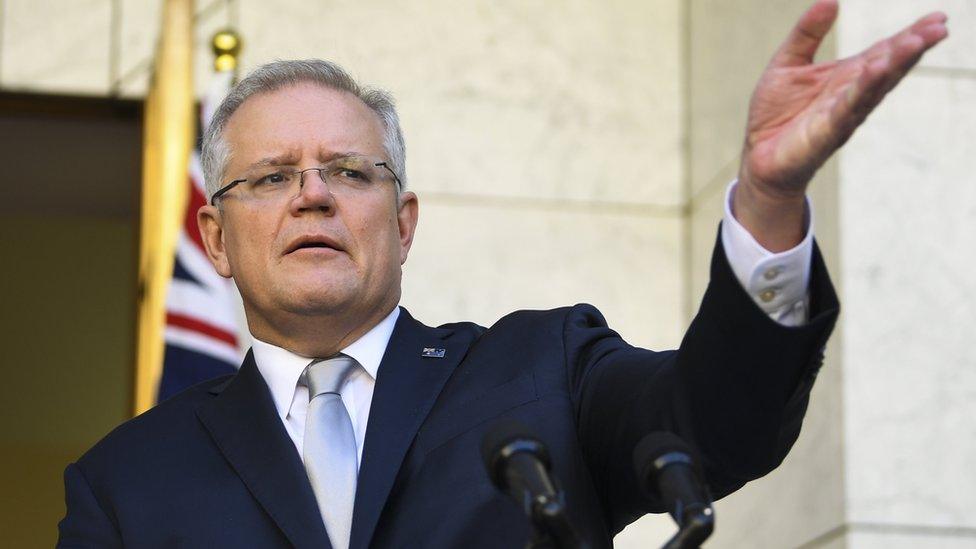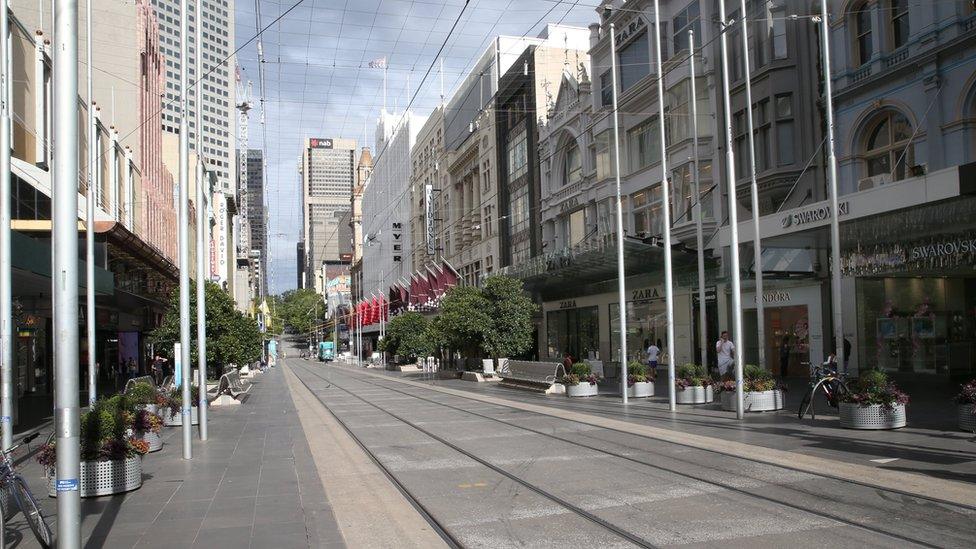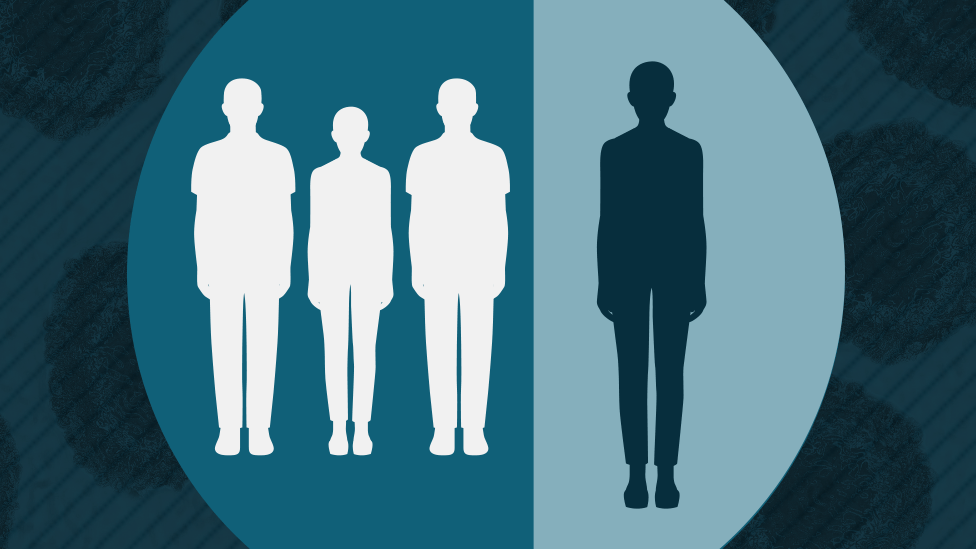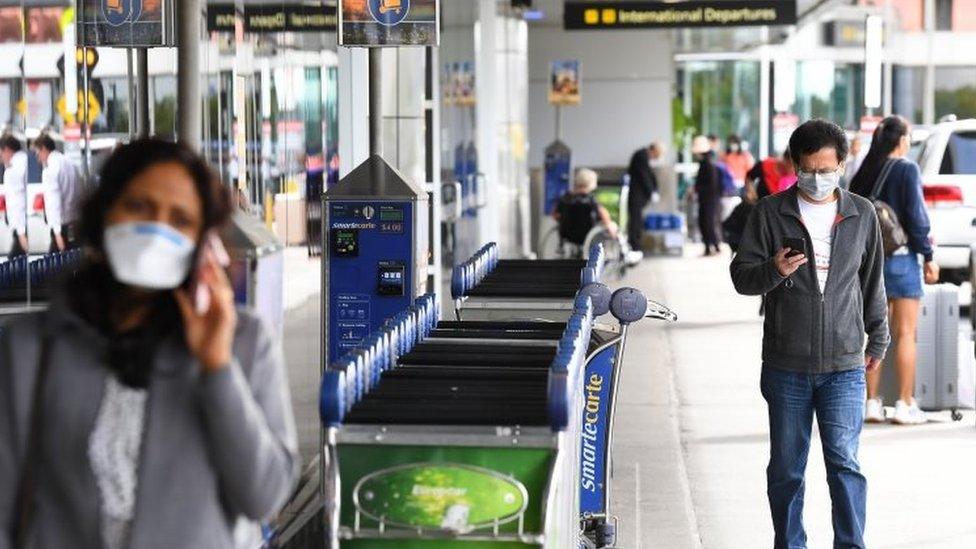Coronavirus: Australia bans 'non-essential' gatherings of over 100 people
- Published

PM Scott Morrison announced sweeping new restrictions on Australian society
Australia has banned "non-essential" gatherings of more than 100 people in response to the coronavirus pandemic.
Prime Minister Scott Morrison announced sweeping new measures on Wednesday, including discouraging travel overseas.
But he said schools, public transport and public squares would remain open, avoiding the kind of shutdown seen in some nations.
Australia has recorded over 450 positive tests and five deaths, with a sharp rise in cases in the past week.
However, the numbers remain lower than in Europe and North America.


LIVE COVERAGE: Latest BBC reporting
EASY STEPS: How to keep safe
A SIMPLE GUIDE: What are the symptoms?
GETTING READY: How worried should the US be?
TRAVEL PLANS: What are your rights?

Following a meeting of cabinet officials on Tuesday night, Mr Morrison said the government had declared a "biosecurity emergency". He described it as a "one in a hundred-year event" but urged the public to remain calm.
"We haven't seen this sort of thing in Australia since the end of the First World War. But together, we are up to this challenge," he said.
As part of the new restrictions, workplaces, prisons and other "essential" places will still operate as normal.
However, other events such as religious gatherings of more than 100 people and concerts in small venues will be prohibited.

People are avoiding typically crowded areas in an effort to socially distance
Mr Morrison said Australians should not travel abroad anywhere - the first time such advice had been given in the nation's history.
"The biggest risk we have had and the biggest incidents of cases we have had... has been from Australians returning from overseas," he said.
On Sunday, Canberra ordered 14-day self-isolation for anyone arriving in the country. Australians currently abroad have been urged to return.
'Keep away from each other'
The doubling of Australian case numbers in the past week has sparked public concern, increasing debate about whether schools and other places should shut.
Many office workers have also begun working from home as Australians practice social distancing measures.
While public health officials have encouraged this, they say they are not looking yet to implement more stringent lockdowns - predicting that the crisis could last about six months.
"There is no way that we can lock down society and make everyone stay home and then in a month's time, undo that, because the virus will just flare up again without any real long-term benefit," Australia's chief medical officer, Dr Brendan Murphy, told reporters.
Instead, he urged Australians to exercise caution in social interactions: "Keep away from each other where possible."
Dr Murphy also said the recent escalation in cases was "obviously concerning" but noted they were "largely still fuelled by imported cases".
Ways to protect yourself from Covid-19
- Published25 January 2022

- Published5 July 2022

- Published15 March 2020
